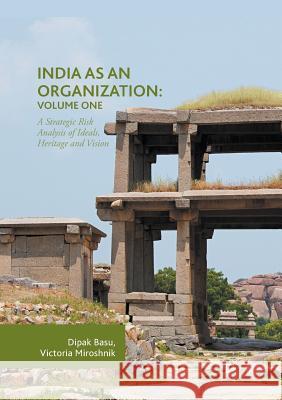India as an Organization: Volume One: A Strategic Risk Analysis of Ideals, Heritage and Vision » książka
topmenu
India as an Organization: Volume One: A Strategic Risk Analysis of Ideals, Heritage and Vision
ISBN-13: 9783319851372 / Angielski / Miękka / 2018 / 228 str.
Kategorie:
Kategorie BISAC:
Wydawca:
Palgrave MacMillan
Język:
Angielski
ISBN-13:
9783319851372
Rok wydania:
2018
Wydanie:
Softcover Repri
Ilość stron:
228
Waga:
0.30 kg
Wymiary:
21.01 x 14.81 x 1.32
Oprawa:
Miękka
Wolumenów:
01
Dodatkowe informacje:
Wydanie ilustrowane











